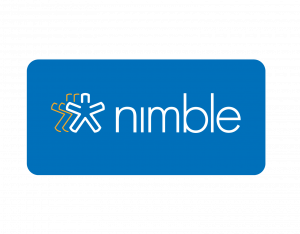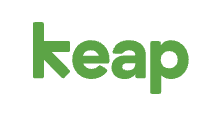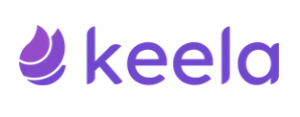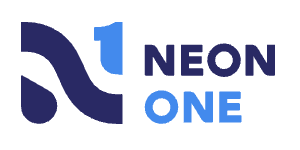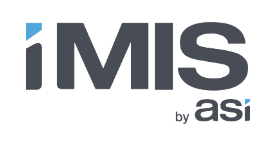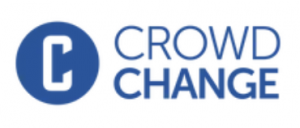Managing relationships with donors, volunteers, and beneficiaries is critical for nonprofit organizations. A Customer Relationship Management (CRM) system can be a game-changer in this sector, offering tools to streamline operations, enhance donor engagement, and optimize fundraising efforts.
Understanding a CRM for Nonprofit Organizations
CRM for nonprofit organizations differs from corporate CRMs as it focuses on nurturing relationships with stakeholders, managing donations, and tracking engagement metrics specific to the nonprofit sector.
Can a CRM be Implemented in Nonprofit Organizations?
Absolutely! Implementing a CRM system in a nonprofit organization can lead to improved donor relations, efficient data management, and enhanced fundraising strategies.
How Much Does a Nonprofit CRM Cost?
You are probably expecting to hear that the cost of nonprofit CRM varies from free to very expensive. However, it’s not very helpful, is it? So we will break it down below to save you time and separate nonprofit CRM providers into ones suitable for small to medium-sized and large organizations.
Top 14 CRMs for Nonprofit Organizations
Navigating the nonprofit sector requires efficient and effective CRM tools. Here are the top 14 CRM systems, from user-friendly options like GiveButter to comprehensive solutions like Blackbaud CRM, each tailored to meet the unique needs of nonprofit organizations.
CRMs Suitable for Small Nonprofits

EngageBay presents itself as a versatile and comprehensive CRM specifically tailored to meet the diverse needs of nonprofit organizations. By offering customizable workflows and advanced email templates, it is an efficient tool for managing donor relations, fundraising campaigns, and volunteer coordination.
Suitability: Particularly well-suited for smaller nonprofit organizations looking for an all-in-one CRM solution.
Key Features: Includes email marketing, customizable landing pages, a complete view of customer interactions, efficient contact management, appointment scheduling, and detailed reporting.
Advantages: Cost-effective with a free plan, user-friendly, customizable, and provides an integrated solution for various nonprofit needs.
Limitations: The free plan limits to 250 contacts, and advanced features are available only in higher-tier plans.
Unique Selling Point: EngageBay combines comprehensive CRM features at an affordable price, making it accessible for nonprofits with limited budgets.
Pricing: Free for up to 10 users and 250 contacts. Paid plans start at $13.79/user/month for more features and capacity.
Givebutter is a free fundraising CRM platform designed specifically for nonprofits, operating on a “Tips” system. If tips are disabled, there’s a platform fee of 1-5%, plus standard processing fees.
Suitability: Ideal for nonprofits of all sizes seeking an intuitive fundraising solution with strong social media integration.
Key Features: Features include multi-channel fundraising (online campaigns, events, and peer-to-peer), easy-to-use donation forms, social media integration, and real-time tracking of donations.
Advantages: Highly user-friendly, offers extensive social media tools for engagement and provides comprehensive real-time reporting. Also notable for its low transaction fees and no subscription cost.
Limitations: Limited CRM functionalities compared to specialized CRM platforms and may require integration with other tools for complete donor management.
Unique Selling Point: GiveButter stands out for its focus on social media-driven fundraising, offering a platform that’s both engaging and efficient for digital-age fundraising.
Pricing: Free to use with competitive transaction fees, making it cost-effective for nonprofits of various budgets. Optional add-ons are available for enhanced features.

HubSpot is a robust and scalable solution and offers excellent third-party integrations and a very limited but truly free option.
Suitability: Ideal for nonprofits seeking a CRM with extensive marketing, sales, and service features, and scalable to any organization size.
Key Features: Offers a full suite of tools including contact and deal management, email tracking, marketing automation, ticketing, and analytics.
Advantages: Free core CRM features, user-friendly interface, strong integration capabilities with other platforms, and extensive inbound marketing tools.
Limitations: Advanced features and additional integrations require paid plans, which might be financially out of reach for many nonprofits.
Unique Selling Point: HubSpot CRM stands out for its strong emphasis on inbound marketing, making it a valuable tool for nonprofits looking to expand their reach and engagement without initial investment.
Pricing: Offers a free plan with essential CRM functionalities. Paid plans for more advanced features start at various price points, catering to different organizational needs and sizes.
Monday.com is a highly versatile project management tool, known for its flexibility and visually intuitive interface, tailored to fit a variety of organizational needs including those of nonprofits.
Suitability: Perfect for nonprofits seeking a customizable project management platform that can adapt to various operational needs, from event planning to volunteer coordination.
Key Features: Features include task and project tracking, workflow automation, time tracking, collaborative tools, and integration capabilities with other software.
Advantages: Highly customizable interface, visually appealing and easy to use, promotes team collaboration, and supports a wide range of integrations.
Limitations: Can be overwhelming due to its extensive customization options, and some advanced features are only available in higher-tier plans.
Unique Selling Point: Monday.com’s standout feature is its adaptability and ease of use, offering nonprofits a single platform to manage diverse aspects of their operations effectively.
Pricing: Offers a basic plan starting at $8.00 per month and includes features like project management and automation.
Nimble CRM is a versatile solution for small and growing teams with a heavy focus on relationship-building. It’s a streamlined and intuitive customer relationship management tool with a social media integration, ideal for small to mid-sized nonprofits.
Suitability: Best for small to mid-sized nonprofits seeking an easy-to-use CRM with strong social media and contact management features.
Key Features: Includes social media integration, contact management, sales and marketing automation, email tracking, workflows and automation, web forms.
Advantages: User-friendly interface, strong focus on social media insights for relationship building, combines various functionalities like sales and marketing in one platform.
Limitations: May lack the depth in certain features required by larger organizations.
Unique Selling Point: Nimble’s integration with social media platforms stands out, offering nonprofits a unique way to enhance donor and volunteer engagement through social insights. Nimble offers streamlined workflows and automation features, making it easy for nonprofits to manage and enhance relationships with donors, volunteers, and other stakeholders efficiently.
Pricing: Offers a 14-day free trial, followed by a single, straightforward paid plan that starts at $24.90 per seat/month on an annual plan.
CRMs Suitable for Medium-Sized Nonprofits
Bloomerang is a donor management software specifically tailored for nonprofit organizations, focusing on donor retention and engagement with its intuitive and insightful platform.
Suitability: Ideal for nonprofits of various sizes looking for a dedicated donor management system that emphasizes donor retention and engagement.
Key Features: Features include donor tracking, donation processing, comprehensive reporting, email marketing, and customizable dashboards.
Advantages: Specializes in donor retention strategies, offers an intuitive user interface, provides robust reporting tools, and includes built-in email marketing capabilities.
Limitations: Limited functionality outside of donor management, and advanced features are available only in higher-tier plans.
Unique Selling Point: Bloomerang’s unique selling point is its focus on enhancing donor relationships and retention, offering insights and tools specifically designed for effective donor engagement.
Pricing: Pricing starts at $79/month, with optional phone support at an additional $35/month. Free trial unavailable.
DonorPerfect is a comprehensive donor management software, designed to assist nonprofits in fundraising, donor tracking, and reporting, emphasizing efficiency and scalability.
Suitability: Ideal for nonprofits of all sizes looking for an all-encompassing donor management and fundraising solution.
Key Features: Includes robust donor tracking, customizable donation forms, fundraising tools, comprehensive reporting, and integration with various third-party applications.
Advantages: Provides extensive fundraising and donor management features, customizable reporting for data-driven decisions, and is scalable to suit the needs of growing organizations.
Limitations: Can be complex to navigate due to its wide range of features, and some advanced functionalities require additional costs.
Unique Selling Point: DonorPerfect stands out for its comprehensive feature set that not only manages donor data but also enhances fundraising efforts, making it a versatile tool for diverse nonprofit needs.
Pricing: Offers multiple pricing tiers based on database size and features required. The pricing starts at $99/month.
Keap CRM, formerly known as Infusionsoft, is a robust CRM and marketing automation platform designed for small businesses and entrepreneurs, offering a blend of client management, sales, and marketing tools.
Suitability: Best for small to medium-sized nonprofits seeking a comprehensive CRM with strong marketing automation and sales features.
Key Features: Includes client management, email marketing, automation tools, sales pipeline management, and e-commerce functionalities.
Advantages: Offers advanced marketing automation and sales features, is customizable to specific needs, and provides a user-friendly interface with a strong focus on streamlining client interactions.
Limitations: Can be more complex and expensive compared to simpler CRM systems, and may offer more features than needed for smaller nonprofits.
Unique Selling Point: Keap CRM distinguishes itself with its powerful marketing automation capabilities, ideal for nonprofits looking to enhance donor engagement and streamline fundraising efforts.
Pricing: Provides tiered pricing based on features and the number of contacts, with plans suitable for different stages of organizational growth. Pricing starts at $159/month.
Keela is a cloud-based donor management and fundraising platform designed specifically for small to medium-sized nonprofits, focusing on ease of use and comprehensive donor engagement tools.
Suitability: Ideal for smaller nonprofits seeking an all-in-one solution for donor management, fundraising, and communication.
Key Features: Features include donor and contact management, fundraising tools, email marketing, customizable donation forms, reporting, and analytics.
Advantages: User-friendly and tailored for the nonprofit sector, Keela offers targeted donor management tools, effective fundraising functionalities, and integrated communication options.
Limitations: May not be as well-suited for very large nonprofits or those needing highly specialized or advanced features.
Unique Selling Point: Keela’s unique appeal lies in its combination of simplicity, affordability, and a suite of tools specifically designed for effective nonprofit management and donor engagement.
Pricing: Offers tiered pricing based on the number of contacts and features required. Pricing begins at $99/month.
A comprehensive, cloud-based CRM platform tailored specifically for nonprofit organizations, focusing on donor management, fundraising, and member engagement.
Suitability: Best suited for nonprofits of all sizes seeking a specialized CRM solution with strong fundraising and membership management capabilities.
Key Features: Includes donor and membership management, event planning tools, fundraising and campaign tracking, email marketing, and customizable reporting.
Advantages: Provides a wide range of features specifically designed for nonprofit needs, integrates easily with other tools, and offers strong support and training resources.
Limitations: The extensive feature set can be overwhelming for smaller organizations, and the cost may be higher compared to simpler CRM solutions.
Unique Selling Point: Neon CRM stands out for its comprehensive and nonprofit-specific functionalities, particularly in donor and membership management, providing an all-in-one solution for nonprofit CRM needs.
Pricing: Offers various pricing plans based on organization size and feature requirements. Starts at $99/month.
SignUp Genius is a user-friendly online sign-up tool designed primarily for event planning and volunteer coordination, focusing on simplifying the process of organizing group events and activities.
Suitability: Ideal for nonprofits, schools, and other organizations that frequently organize events and require volunteer sign-up management.
Key Features: Features easy-to-create online sign-up sheets, customizable themes, email and SMS reminders, volunteer management, and reporting tools.
Advantages: Extremely user-friendly and efficient for organizing volunteers and events, offers customizable sign-up pages and includes automated reminder features.
Limitations: More focused on event and volunteer management, lacking broader CRM functionalities and advanced donor management tools.
Unique Selling Point: SignUpGenius excels in streamlining the process of organizing volunteers and events, making it invaluable for nonprofits with active volunteer programs and frequent events.
Pricing: Offers a free basic plan with essential features, and paid plans starting at $11.99 per month.
CRMs Suitable for Large Nonprofits
Blackbaud CRM is a sophisticated, cloud-based CRM solution designed specifically for large nonprofits, educational institutions, and healthcare organizations, focusing on comprehensive donor management and fundraising.
Suitability: Best for large-scale nonprofits and institutions seeking an advanced, all-encompassing CRM solution for complex donor management and fundraising operations.
Key Features: Includes in-depth donor and constituent management, advanced fundraising tools, marketing automation, financial management, and analytics.
Advantages: Offers robust, specialized features tailored to the needs of large organizations, supports complex fundraising campaigns, and provides extensive data analytics and reporting capabilities.
Limitations: Can be complex and costly, potentially making it less suitable for smaller nonprofits. The comprehensive nature of the tool also requires significant time investment to fully utilize its capabilities.
Unique Selling Point: Blackbaud CRM distinguishes itself with its depth and breadth of features specifically designed for large-scale, sophisticated donor management and fundraising activities.
Pricing: Pricing is typically customized based on the specific needs and scale of the organization, reflecting its focus on serving larger institutions with complex requirements.
iMIS is an advanced CRM and engagement management system designed primarily for nonprofits, associations, and membership organizations, focusing on member/donor engagement and retention.
Suitability: Ideal for membership-based organizations, professional associations, and larger nonprofits needing a robust system for member engagement and management.
Key Features: Features comprehensive member/donor management, event and fundraising management, email marketing, social media integration, and extensive reporting capabilities.
Advantages: Offers a wide range of features tailored for managing memberships and donations, supports complex event and fundraising activities, and integrates with various platforms.
Limitations: Its extensive functionality can be complex, possibly requiring more time for staff to learn and utilize effectively. The system may be more than needed for smaller organizations with simpler requirements.
Unique Selling Point: iMIS stands out with its strong focus on membership management, offering an all-in-one solution that combines CRM capabilities with advanced engagement and retention tools.
Pricing: Designed for larger organizations, with pricing starting at $200 per month.
CrowdChange is a fundraising and event management platform designed primarily for educational institutions and nonprofits, focusing on engaging donors and simplifying event organization.
Suitability: Ideal for schools, universities, and nonprofits that focus on engaging younger donors and volunteers, particularly through events and online fundraising campaigns.
Key Features: Features include online fundraising tools, event management, donor engagement and tracking, social media integration, and reporting analytics.
Advantages: User-friendly and tailored for engaging younger demographics, integrate social media effectively for fundraising, offers straightforward event organization tools, and provides useful analytics for tracking donor engagement.
Limitations: More focused on fundraising and event management, lacking broader CRM functionalities. May not be as suitable for organizations seeking comprehensive donor management systems.
Unique Selling Point: CrowdChange stands out for its appeal to younger audiences and its focus on social media and online engagement for fundraising, making it highly effective for schools and youth-centric nonprofits.
Pricing: Pricing is available upon request.
It’s important to consider the specific needs and size of your nonprofit organization when selecting a CRM provider. Each option has its strengths, and pricing varies, so it’s advisable to contact the providers directly for the most accurate and current information regarding their offerings and pricing. Many providers will also offer free trials. Trialing multiple providers can require a lot of time so we suggest reading up on peer reviews on sites like G2 and Capterra and creating a shortlist based on real customer reviews.
Essential Elements of a Nonprofit Organizations CRM
A nonprofit CRM should include donor management, event planning, volunteer coordination, and reporting capabilities, all tailored to the unique needs of the nonprofit sector.
Selecting the Right CRM for Nonprofit Organizations
Choosing the right CRM involves assessing your organization’s size, budget, and specific needs. It’s crucial to find a balance between functionality and cost.
Identifying Your Nonprofit Organizations’ Requirements
Evaluate your organization’s processes, data management needs, and engagement strategies to identify the key features required in a CRM.
Key Features of CRM for Nonprofit Organizations
A nonprofit CRM should offer donor tracking, communication tools, fundraising management, and customizable reporting features.
- Contact Management
Nonprofit organizations typically store a variety of contact types in their CRM systems to effectively manage relationships and streamline their operations. Some common types of contacts include Donors, Volunteers, Members, Beneficiaries, Board Members, Staff and Employees, Event Attendees, Corporate Partners/Sponsors, Media Contacts, Government Contacts, Community Leaders and Influencers, Suppliers and Vendors).
Tip: Make sure you properly organize all your contacts when importing them. Contacts can easily be organized using tags or custom fields.
- Communications Management
Automatic syncing of emails and calendars will enable everybody in your organization to quickly and easily find all important previous communications without having to search your inbox. With this functionality, nonprofits can ensure that all communications with donors, volunteers, and other stakeholders are centrally tracked and organized.
- Contact List Building and Prospecting
Contact list building and prospecting are not just about growing a list of names; they’re about strategically expanding the nonprofit’s reach and capabilities in all aspects of its operation, from fundraising and volunteer recruitment to program delivery and advocacy. Finding a tool that will allow your nonprofit to do this seamlessly while saving time on research and data entry like Nimble Prospector is crucial.
- Workflows and Pipelines
Workflows and pipelines are vital for nonprofits, providing a structured approach to managing various tasks. Customizable pipelines with visual tools like Kanban boards help in efficiently tracking activities, even those without direct financial outcomes. This organization aids in monitoring progress and assigning responsibilities, crucial for resource-limited nonprofits. By streamlining processes, these tools enhance productivity, improve team collaboration, and optimize resource use, thus significantly aiding in achieving the nonprofit’s goals.
- Customization and Donor Profile Customization
Customization of a CRM is essential for nonprofits as it allows tailoring of the contact records to meet specific needs, particularly for donors and other key contacts. By customizing these records, nonprofits can capture and organize relevant information such as donation history, preferences, and engagement levels. This level of detail enhances the productivity of outreach teams by providing them with insightful data, enabling more targeted and effective communication strategies. Customized CRM records ensure that outreach efforts are not just broad but also deeply relevant and personalized, leading to stronger relationships and potentially increased support for the nonprofit’s mission.
- Email Marketing
Email Marketing offers an efficient way to communicate with a broad audience at a relatively low cost. The use of email templates saves time and ensures consistency in messaging, while email tracking and reporting provide valuable insights into engagement levels, open rates, and the effectiveness of different campaigns. This data allows nonprofits to refine their strategies, tailor their communications to specific segments of their audience, and ultimately enhance the impact of their outreach efforts.
- Technical Support and Training
For nonprofits, selecting a CRM vendor with outstanding technical support and training is crucial as it ensures efficient resource utilization, maximizes the CRM’s functionality, and maintains operational efficiency. Excellent support and training enable staff to adapt to technological changes, customize the CRM to meet unique organizational needs and mitigate risks like data mishandling. This is essential in maintaining donor trust and achieving the nonprofit’s mission effectively.
Navigating User Interface and Ease of Use
A user-friendly interface in CRM systems is essential for nonprofits, as it ensures staff with varying IT skills can easily manage donor data and fundraising activities. An intuitive CRM enhances efficiency, allowing more focus on mission-critical tasks and optimal use of resources, which is crucial for achieving organizational goals in the nonprofit sector.
Checking Integration and System Compatibility
A CRM that seamlessly connects with existing tools like email platforms, accounting software, and social media channels is essential for efficient workflows. Such integration minimizes manual data entry, reduces errors, and provides a unified view of operations, enhancing productivity and decision-making. For resource-limited nonprofits, a well-integrated CRM is a necessity for effective operations.
Ensuring Security and Confidentiality
Data security is non-negotiable. A CRM for nonprofits must have robust security measures to protect sensitive donor and organizational data.
Analyzing Costs and Potential Returns
Consider not only the upfront cost but also the potential ROI regarding improved efficiencies, increased donations, and better donor retention. Take into consideration any fees some CRM vendors require.
Implementing Trial Runs and Demos
Most CRM providers offer trial periods or demos. Utilize these to assess if the CRM aligns with your organization’s needs. Before you do so, go through review sites like G2 or Capterra to read reviews posted by similar nonprofits to create a short list of potential vendors. Reviews can be filtered on the industry, size of organization, and also their recency which will save you even more time during the research period.
Case Study: An example of a CRM Implementation in Nonprofit Organizations
Experience Full Circle, a non-profit based in the United States, implemented Nimble by integrating it into their workflow from the outset. The first person who interacts with a record is responsible for entering it into Nimble, and attaching it to relevant email communications. This approach ensures a shared history and comprehensive overview of ongoing activities. They’ve developed a system of tags and utilize group messaging features.
Despite not running extensive campaigns, they recognize Nimble’s potential as more than just a sales CRM or contact management tool. They see it as central to achieving critical nonprofit goals like traction, funding, exposure, and capability. They envision Nimble as an Operating System (OS) for nonprofits, aiding in leveraging limited resources like time and manpower more effectively.
Meet Nimble — The Perfect CRM for Nonprofit Organizations
Nimble is a standout option, especially for small nonprofits. It excels in nurturing relationships, offering a blend of affordability, functionality, and user-friendliness. Nimble offers a free 14-day trial and is heavily customizable. Reach out to our team for information about nonprofit pricing!
Summary
The right CRM can revolutionize a nonprofit organization’s operations, leading to increased efficiency, better donor relationships, and higher fundraising success. You can select a CRM that fits your organization perfectly by carefully evaluating your needs and the available options.



